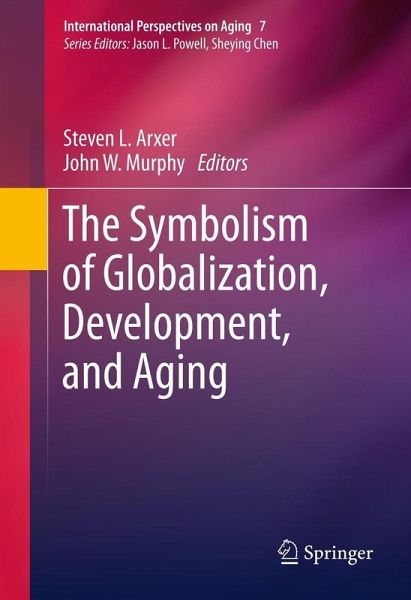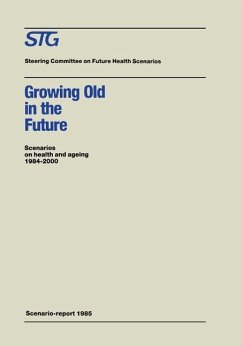
The Symbolism of Globalization, Development, and Aging (eBook, PDF)
Versandkostenfrei!
Sofort per Download lieferbar
72,95 €
inkl. MwSt.
Weitere Ausgaben:

PAYBACK Punkte
36 °P sammeln!
This book looks at the symbolic side of globalization, development, and aging. Many of the dimensions that are discussed represent updates of past debates but some are entirely new. In particular, globalization is accompanied by subtle social imagery that profoundly shapes the way institutions and identities are imagined. The process of aging and persons sense of identity is no exception. The underlying assumptions that pervade globalization inform how critical dimensions of aging are discussed and institutionalized. The application of marketplace imagery, for example, may impact attempts for ...
This book looks at the symbolic side of globalization, development, and aging. Many of the dimensions that are discussed represent updates of past debates but some are entirely new. In particular, globalization is accompanied by subtle social imagery that profoundly shapes the way institutions and identities are imagined. The process of aging and persons sense of identity is no exception. The underlying assumptions that pervade globalization inform how critical dimensions of aging are discussed and institutionalized. The application of marketplace imagery, for example, may impact attempts for holism in how aging is studied and the prospects for human agency during the aging process. This book offers a special look into how temporality, technology, normativity, and empiricism structure the symbolic side of globalization and influence dominant images of the aging process. Current debates about globalization and aging are expanded by helping readers see the social imagery that is both subtly behind globalization and at the forefront of shaping the aging experience.
Dieser Download kann aus rechtlichen Gründen nur mit Rechnungsadresse in A, B, BG, CY, CZ, D, DK, EW, E, FIN, F, GR, HR, H, IRL, I, LT, L, LR, M, NL, PL, P, R, S, SLO, SK ausgeliefert werden.













